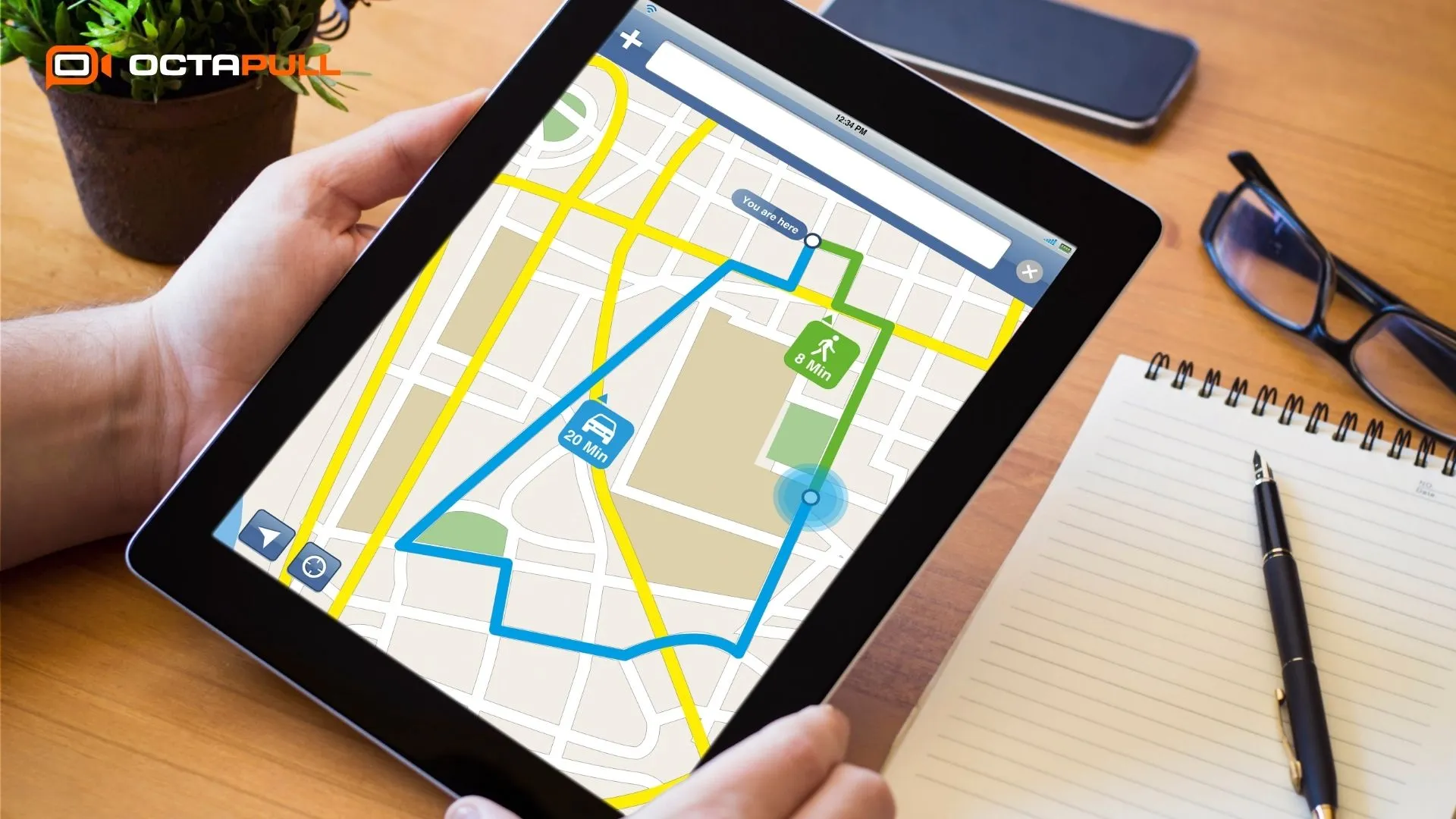Smarter Routes, Higher Sales: The Power of Route Planning for Field Teams
Imagine this: your field sales team starts the day eager to meet customers, but by the afternoon, they’re stuck in traffic, circling back to areas they’ve already visited, or rushing to squeeze in last-minute appointments.
The result? Fewer customer visits, lower sales, and frustrated team members. Poor planning wastes time, hurts productivity, drains resources, and leaves revenue on the table. In today’s competitive market, every minute your team spends on the road should bring them closer to closing deals.
That’s where smart route planning comes in. By optimizing your team’s travel routes, you can help them spend less time driving and more time selling, leading to higher efficiency, better customer satisfaction, and ultimately, increased sales.
What is Route?
In the context of sales and logistics, a route is the predefined path that sales representatives or delivery vehicles follow to reach customers, retailers, or distribution points efficiently.
Effective route planning ensures that products reach the right locations on time while minimizing travel costs and maximizing sales opportunities. For sales teams, optimized road plans help prioritize high-value clients, schedule multiple visits in a single trip, and increase overall productivity.
In logistics, delivery management is crucial for reducing fuel consumption, avoiding delays, and improving supply chain reliability. Leveraging modern tools such as route optimization software and real-time tracking allows businesses to streamline operations, enhance customer satisfaction, and gain a competitive edge in the market.
What Is Route Planning?
Route planning is the process of determining the most efficient path for your field sales team to follow when visiting multiple customers or locations in a day.
For field sales teams, planning can be done manually (with spreadsheets and maps) or automatically with an optimization software that calculates the best order of stops in seconds. The goal is simple:
- Reduce travel time
- Maximize the number of visits per day
- Minimize fuel and operational costs
- Ensure timely customer interactions
In short, route planning helps your team spend less time driving and more time selling, which directly translates to higher productivity and revenue.
Why Route Planning Matters for Field Sales Teams 
Route planning isn’t just about getting from Point A to Point B; it’s about setting your sales team up for success every single day. Here’s why it’s so critical:
- Efficiency First: Every extra minute spent in traffic is a minute not spent with a customer. Smart planning minimizes unnecessary travel time, allowing reps to visit more customers in a single day, which means more opportunities to close deals.
- Cost Savings: Fewer kilometers on the road mean lower fuel consumption, less vehicle maintenance, and fewer expenses overall. Over time, these savings add up and directly impact your bottom line.
- Customer Satisfaction: When your reps arrive on time (or even early), it shows professionalism and respect for the customer’s schedule. Faster, more reliable visits also improve your team’s ability to respond to urgent requests, strengthening trust and loyalty.
- Competitive Edge: In sales, speed matters. A team that can visit more prospects, nurture more leads, and follow up faster has a clear advantage over competitors still stuck on inefficient delivery paths.
Challenges of Not Using Route Planning
Skipping proper planning might seem like a time-saver at first, but it usually creates bigger problems down the road. Here are the most common challenges field sales teams face without a smart system in place:
- Unnecessary Backtracking and Wasted Travel Time: Without an optimized route, reps often zigzag between locations, wasting valuable hours behind the wheel instead of in front of customers.
- Missing Priority Accounts or New Opportunities: When routes are not planned strategically, high-value accounts can get overlooked, and opportunities for new business might be missed entirely.
- Miscommunication Between Sales Managers and Reps: Manual planning makes it harder for managers to see where reps are, which visits have been completed, and where schedules are falling behind, leading to confusion and inefficiencies.
- Increased Stress and Burnout for Field Reps: Poorly planned maps mean longer days, more time in traffic, and less time selling, all of which can lower morale and increase burnout rates on your team.
What Are The Benefits of Smart Route Planning?
Smart route planning is more than just guiding your team from one customer to the next; it’s a strategic tool that can transform your field sales and logistics operations. By leveraging intelligent solutions, businesses can maximize efficiency, boost team productivity, and enhance customer satisfaction. Here’s a closer look at the key benefits:
Optimized Scheduling
Smart route planning tools allow you to organize your route to prioritize high-value accounts and structure stops in the most efficient sequence.
This ensures sales reps or delivery teams spend more time engaging with key customers and less time navigating between locations. By optimizing the pathway, businesses can achieve higher visit density, reduce travel costs, and make every journey more productive.
Real-Time Updates
Customer needs and schedules can change at a moment’s notice. With real-time route adjustments, your team can instantly respond to last-minute cancellations, urgent service calls, or new sales opportunities without disruption.
Dynamic routing ensures your routes are always current, helping teams stay agile while maintaining punctual deliveries and client satisfaction.
Data-Driven Insights
Modern route planning platforms collect and analyze data on travel times, stop durations, visit frequency, and route efficiency.
Managers can use this actionable insight to refine strategies, identify bottlenecks, and continuously improve team performance. By tracking performance, organizations can reduce fuel costs, enhance delivery reliability, and make informed operational decisions.
Collaboration
Shared route visibility creates transparency across teams. Everyone, from field reps to managers, knows which visits are completed, which are pending, and where each team member is along their route. This reduces miscommunication, improves coordination, and ensures that teams work together seamlessly, whether in sales coverage or logistics delivery.
Improved Work-Life Balance
Optimized routes help your team work smarter, not harder. With predictable, well-planned road maps, reps and drivers can complete their visits efficiently, reduce unnecessary stress, and maintain a healthier work-life balance. A smoother daily routine not only increases job satisfaction but also boosts motivation, performance, and long-term retention.
How Route Planning Software Can Help 
Manual planning using spreadsheets, paper maps, or outdated tools can be time-consuming, error-prone, and inefficient.
Field sales teams often spend more time figuring out where to go than actually engaging with customers. Octapull SFA transforms this process by automating route planning, helping sales and logistics teams work smarter, not harder.
With just a few clicks, managers can design an optimized road plan, share it instantly with sales reps or delivery drivers, and maintain real-time alignment across the team. This ensures that everyone follows the most efficient path, reducing missed appointments and unnecessary travel.
Automatic Road Optimization
Octapull SFA leverages advanced algorithms to calculate the best route based on distance, appointment schedules, traffic conditions, and priority accounts.
The result is maximizing productivity, minimizing travel time, and ensuring timely deliveries or customer visits. By automating this process, teams save hours of planning time and can focus on driving sales or completing deliveries efficiently.
Integration with LMS & SFA Systems
When route planning is connected to your Logistic Management Software or Sales Force Automation (SFA) platform, your team can see customer information, order history, and visit notes all in one place, making every trip more productive.
Mobile-Friendly Access for Field Reps
Reps can view their optimized routes directly on their phones, update visit statuses, and log new opportunities on the go, keeping everything up to date in real time.
Real-Time Adjustments & Notifications
Plans can change, and a smart planning solution adapts instantly. Whether it’s a last-minute client cancellation, urgent service call, or new opportunity, the software recalculates the route in real time. This flexibility ensures teams stay on track, maintain high service levels, and respond quickly to dynamic field conditions.
Reporting Dashboards for Managers
With route planning software, managers gain complete visibility into field operations through intuitive reporting dashboards. They can track visit coverage, monitor the time spent on each way, and analyze key performance metrics for individual reps or entire teams.
This data allows managers to identify inefficiencies in roads, optimize scheduling, and make informed decisions to improve overall field productivity. By leveraging insights from performance, managers can continuously refine strategies, ensure balanced workloads, and maximize both sales and delivery outcomes.
Increased Team Productivity
By removing the guesswork from planning, reps spend more time interacting with customers and less time navigating between locations. Optimized routes boost overall field efficiency, increase coverage per day, and improve both customer satisfaction and team morale.
Conclusion
Smart route planning isn’t just a logistics improvement; it’s a growth strategy. By optimizing roads and maps, your team spends less time driving and more time doing what matters most: building relationships and closing deals.
Ready to boost your team’s efficiency and maximize sales potential?
Explore how Octapull SFA can help you automate route planning, streamline field operations, and gain full visibility over your team’s performance. Contact our team and book a free demo today, and start turning smarter routes into higher sales!






